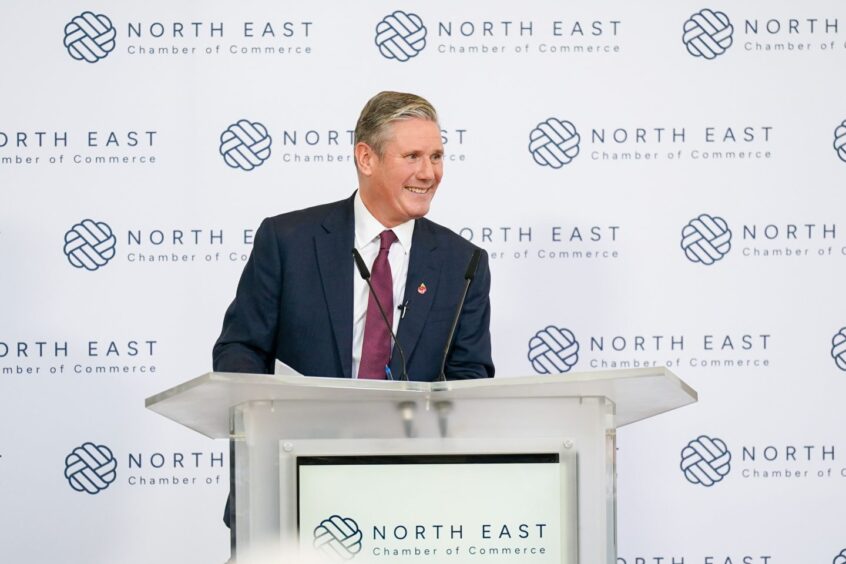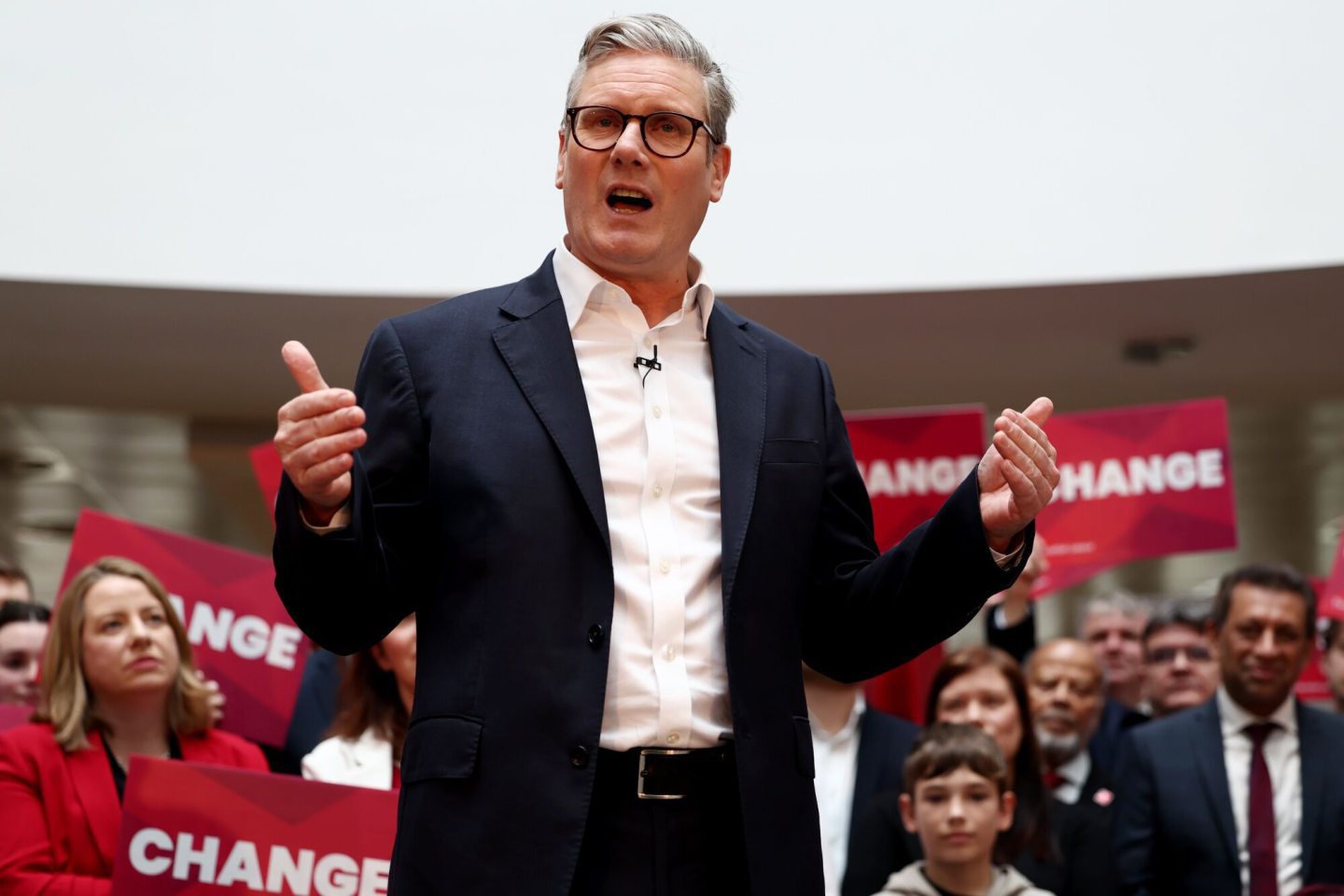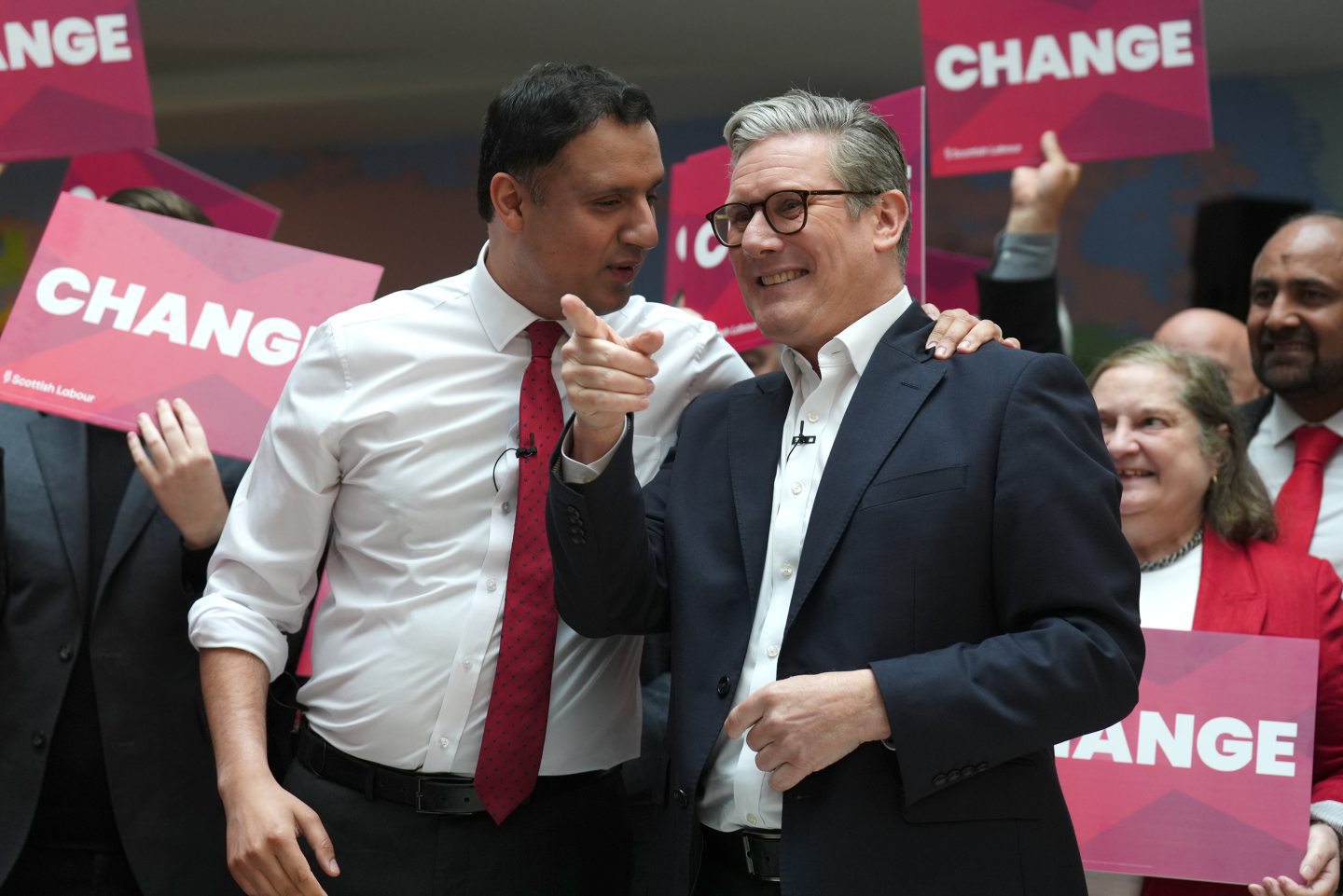
Keir Starmer put Scottish voters at the heart of his campaign to become prime minister, urging them to vote for his opposition Labour Party to end the Conservative Party’s 14-year grip on UK power.
Kicking off Labour’s campaign in Glasgow ahead of the July 4 general election, Starmer said his party offered a third way between the Scottish National Party’s focus on independence and the “chaos” of Rishi Sunak’s governing Tories in Westminster. A Labour government would “chart a new course,” citing his plans to base a new publicly-owned clean energy company in Scotland.
“There’s no change without Scotland, there’s no Labour without Scotland — Scotland is central to the mission of the next Labour government,” Starmer said at the televised event on Friday. “We have the opportunity to kick the Tories out, but you have to take that opportunity by voting Labour.”
Despite leading by about 20 points or more in UK-wide opinion polls, there’s still an assumption that Labour needs to pick up seats in Scotland to win an outright majority in Westminster. That’s partly because it’s always been so — past Labour governments have coincided with strong Scottish support. The party’s electoral collapse north of the border played a major role in the Conservative Party holding power since 2010.
Labour’s Scotland focus
But the importance of Scotland appears even greater this time due to the scale of Labour’s defeat under Jeremy Corbyn at the last general election in 2019. That left Labour requiring the biggest turnaround in the postwar era to win a majority — over double the challenge facing Tony Blair in his first win in 1997.
While Sunak’s decision to call a snap election looked like an attempt to catch opposition parties off guard, it may have actually played into Labour’s hands in Scotland, where the opposition party is expected to be the main beneficiary of the political ructions within the SNP. The nationalists have dominated Scottish politics for well over a decade, but their recent struggles have hit hard.
The sudden upheaval includes the exit of totemic leader Nicola Sturgeon, her husband being charged for embezzlement as part of a probe into the SNP’s finances and the resignation of Sturgeon’s successor Humza Yousaf last month. John Swinney was brought in as leader to stem the poll bleeding, but Sunak’s decision to call an early election has thrust Sturgeon’s former right-hand man immediately into a complicated campaign.
Labour ahead in polls
Labour has capitalized. Polls show Starmer’s party — which is led by Anas Sarwar in Scotland — ahead of the SNP, after a decade of nationalist dominance since they lost a bid for Scottish independence in the 2014 referendum.
Even so, Labour still needs to convert that poll lead into seats. As recently as 2010, the party had 41 of Scotland’s 59 MPs in Westminster. Amid burgeoning support for the SNP’s pro-independence message, it won only a single constituency in both 2015 and 2019. Following a by-election in Rutherglen and Hamilton West last year, it goes into the election holding two.
The challenge for Labour is to appeal to voters disaffected by the SNP but who haven’t dropped their support for independence. It’s why Starmer focused on issues such as health care and education, to tap into the idea that the SNP’s focus on constitutional issues allowed more everyday problems to fester.
He also tried to link the turmoil under the SNP in Scotland with the Conservative Party’s record across the UK.
“The chaos and division has a cost. Seventeen years here in Scotland, spinning round and round with nothing material delivered,” he said. “Fourteen years in Westminster. Chaos and division feeding chaos and division.”
Energy policy
Beyond the broader message of “change,” Starmer’s retail offering in Scotland is built around a plan for a publicly-owned clean power company called Great British Energy. The party said it will help lower energy bills, increase the UK’s self-sufficiency and stimulate private investment in new technologies.
The company will bring jobs to Scotland while “keeping prices down across the whole country,” he said. A vote for Labour would mean “bringing the change that we need here in Scotland and across Britain.”
Starmer’s Glasgow event was timed with regulator Ofgem’s announcement of a new energy price cap, which despite being 7% lower, still leaves households paying far more on average than before Russia’s war in Ukraine.
Renewable energy is also a major political dividing line with Sunak’s Tories, who say Labour’s plans will lead to higher bills via green levies to fund them.
Labour “aren’t honest about the costs that their reckless net zero targets would place on households,” Energy Secretary Claire Coutinho said in remarks released by the Conservative Party.
Recommended for you

 © Photographer: Jeff J Mitchell/Ge
© Photographer: Jeff J Mitchell/Ge © Andrew Milligan/PA Wire
© Andrew Milligan/PA Wire